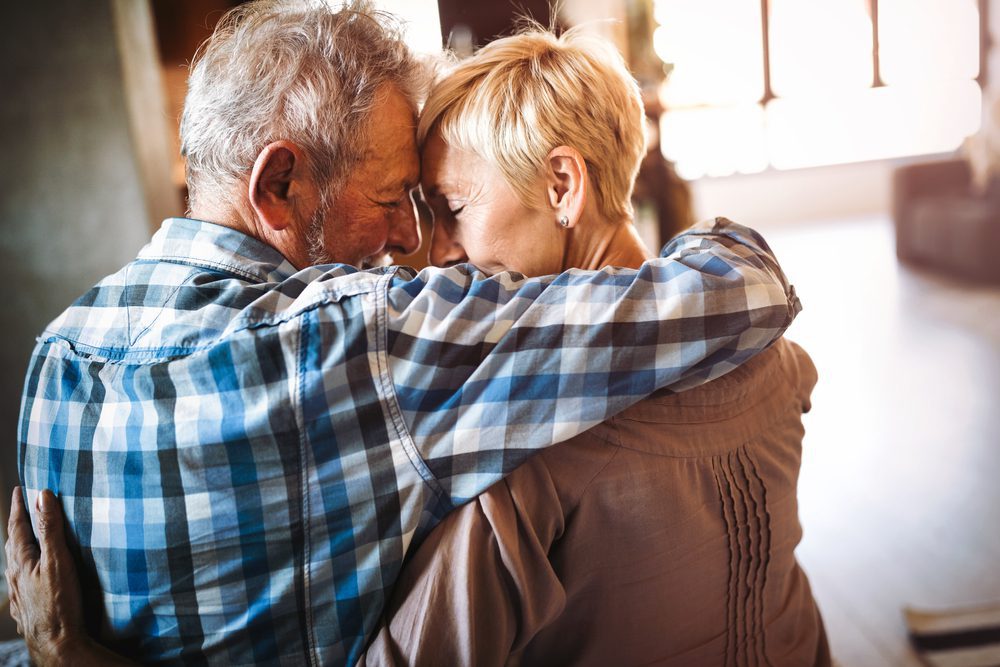On this episode of DETANGLE
Do you want to find out more about the way intimacy works after retirement?
Many believe that after a certain age, people just stop being intimate. But isn’t that a little bit strange? Do people really stop being intimate once they get older?
Obviously not! That’s why we’re here: to debunk some of the most popular myths about intimacy in retirement!
Sadly, even nowadays, we are still rooted in some stereotypes about aging, and that needs to change. Obviously, among all of those preconceptions, we can’t miss the ones about intimacy and intimate relations during the senior years.
We have to stop feeling weird or inappropriate when thinking about old people in the context of intimacy. Seniors are also humans, and having consensual intimate relationships at an older age is completely normal and healthy.
To gain a better understanding of this subject, we must discuss it clearly and separate myths from facts. According to a study led by the National Poll on Healthy Aging from the University of Michigan, 40% of people aged 65–80 are still physically intimate.
Seniors are not physically intimate
The way intimacy evolves throughout our lives might resemble an arch. In the beginning, during puberty, we learn about it many times in school or from our parents with a limited and restrictive attitude. After this phase, everything gets better, and we are all open about this topic. In the end, when we are around retirement age, this subject becomes taboo once again. Our society refuses to talk about the fact that older people are still intimate with one another and how this is perfectly normal.
Maybe the cause of this type of attitude lies in the way our culture focuses on youth. Let’s not even get started on how many movies focus on this aspect of intimacy, such as rom-coms, which feature only teenagers and young adults, leaving seniors out.
Also, because of this stigma, older patients are treated by their doctors like they don’t have an intimate life at all. And that is not fair at all. Some studies showed that many medical professionals have a hard time talking about physical relationships with their patients, and this applies especially when the patients are of a different age and gender from the doctor.
In conclusion, we should stop removing this aspect from the lives of seniors. It is wrong to assume that older people are not intimate and dismiss anything related to this topic.

Intimate connection is not important anymore
We, as humans, will always have a desire for intimacy with other people. It is only natural for this to happen. And you know what? Age is not a factor that determines how much physical intimacy we want during our lives. Actually, when we are older, this type of interaction is essential to our well-being.
People might think that as individuals get older, their need for physical closeness decreases and is not important in relationships anymore. But this is not true. Many times, seniors say that their intimate life is much better now than it used to be. You might think that this is somehow counterintuitive. How can this be true?
The answer is pretty simple. Once you retire, you have more time. And in this case, time and patience are key. They can now concentrate on the act itself without being distracted by anything else, such as family members or a job. Also, older couples don’t care that much about how they look. They are usually more confident about their bodies and can focus on how they feel rather than how they look.
The presence of intimacy in the lives of seniors has many beneficial effects, such as reduced stress levels, wounds healing much faster, and, in some instances, a longer life span and healthier behaviors. It can also keep depression away. So, physical connection is essential in their lives, and older adults should not feel weird about this completely normal aspect of their lives.
Nursing homes are no place for intimacy
If you live in a nursing home, that doesn’t mean that you should give up on your intimate life. While residing in a nursing home, you still have the right to respect and privacy. You can do whatever you used to do before moving there, and the facility wants to guarantee you the best quality of life.
If both you and your partner consent and you are safe, it is perfectly normal for seniors to engage in physical intimacy. In the case of seniors who suffer from Alzheimer’s disease, things work the same way. They are not forbidden to have intimate interactions, but their care team should take every variable into consideration and decide what is best for the patient.
Women stop getting aroused once they hit menopause
This is another misconception that is rather common: that women will not get aroused anymore after they go through menopause. It is true that once the estrogen levels are lower, the body suffers some changes that can cause difficulties and make physical intimacy uncomfortable. Still, with all of this, women can get aroused, and this should not stop them from being intimate with their partners.
In order to adapt to these changes, the ladies should try a different approach. Hormonal changes can impact the way everything feels, but they are not the only factor. Among them, we can list stress, certain medications, trauma, and the relationship with their partner. All of this can cause a decrease in libido.
Senior women can still get aroused, and maybe all that needs to be done is that both partners should put in a little more effort. You can try to use special products that enhance libido, or you can set the mood ahead of the moment you want to get intimate. This can help you mentally prepare for it. If nothing seems to work, you can try going to therapy. There are many therapists out there who specialize in helping seniors rediscover their intimate side.

Seniors don’t find each other attractive
We are used to connecting beauty with age. This is presented in such a way that it can make you think that if you want to be happy with an intimate connection, you need to be young and beautiful. If you don’t fit in, you can’t enjoy life to the fullest.
But we are humans, and our brains are wired in such a way that they release hormones that constantly fuel desire. We are made to connect with one another on an intimate level, even more so when we are in a relationship with someone.
More than that, our preferences about people change as we age. We are naturally drawn to people who are about the same age as us. So, when someone says that older people are not tactful to each other, this is very far from the truth.
If you are a senior, you don’t have to worry about STIs
You might think that only younger people could get STIs, but this is far from the truth. Because most women over 50 can no longer become pregnant, seniors do not use any kind of protection, resulting in an increase in the number of STIs among the elderly.
Nowadays, seniors are more open about meeting new people, and they are also using dating apps. They seem to recover faster after a divorce or the loss of their spouse and start dating again. Such an increase in STI cases, for example, has been observed in Florida, where there is a larger community of retirees.
After many years of monogamy or not dating, people find it harder to talk about intimacy with their partners or their doctors. It is very important to raise awareness about this phenomenon and educate seniors about using protection and taking care of themselves in intimate moments.
If you are at the beginning of your journey of learning about intimacy and the way it works for seniors, this book might help you.
You should also check out: SENIORS ONLY: 6 Great Ways to Meet Your Next Date

One Response
We are very affectionate!! We have been Making 56 years and I dearly love him !!!